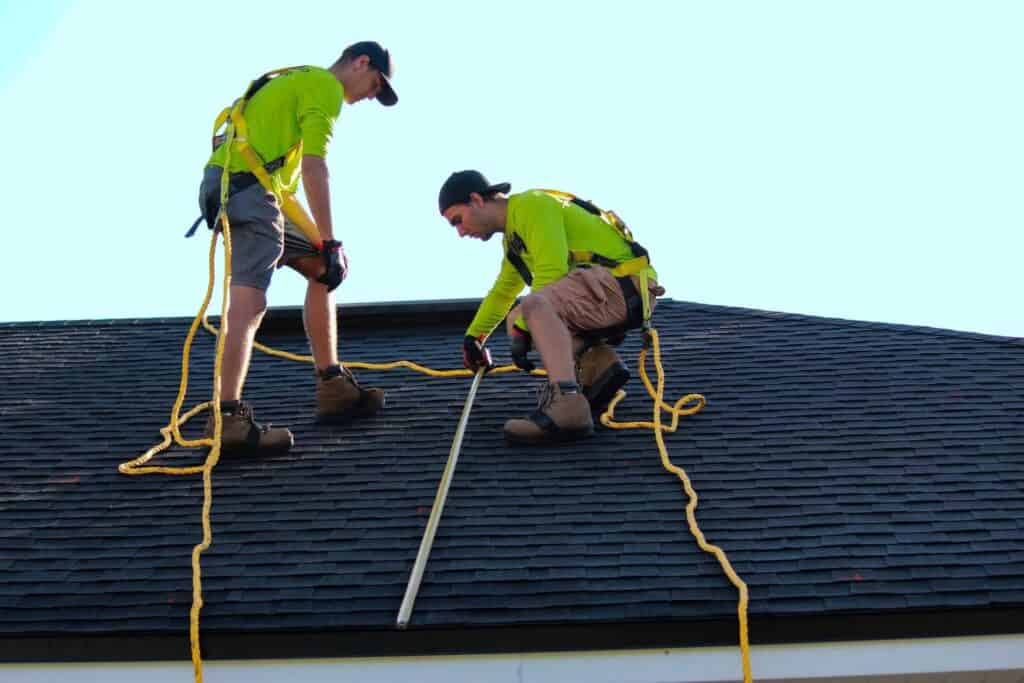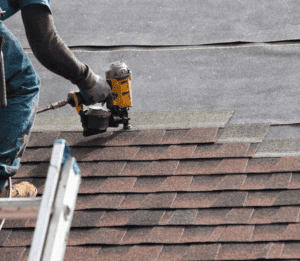Many people don’t realize that residential and commercial roofs are very different. Residential roofs have one very important purpose, which is to protect your home from the elements and weather by draining water towards the gutters and away from your home. Commercial roofs, on the other hand, are built to serve a very different purpose. Commercial roofs are designed according to the needs of the building, which often requires storing large equipment.
Residential roofing contractors specialize in materials that are used to protect homes from the elements. These materials often include asphalt, wood, slate, concrete and metal. Commercial roofing contractors, on the other hand, require a different set of skills to work with materials such as single-ply, concrete, modified bitumen, tar, and gravel. While a roofer is a roofer, there are specializations within that trade that are different between residential and commercial roofs.
The following outlines some of the main factors that make residential and commercial roofs different.
Design and Slope
The design and slope of a roof is one of the main differences between residential and commercial roofs. Residential roofs typically have much steeper slopes for functionality and aesthetics. Whereas, commercial roofs tend to have flat roofs or roofs with a small slope. A residential roof tends to have much greater curb appeal than a commercial roof.
Commercial roofs are much larger in size than residential roofs and are often home to heavy equipment, such as HVAC blowers, air conditioners or industrial pipes.

Maintenance
Once your roof is installed, that doesn’t mean you are off the hook. Commercial roofs are much more difficult to maintain and usually cover a large surface area. The flat nature of the roof and the size makes a commercial roof much more susceptible to the elements, especially in colder climates with snow. A commercial roof requires regular inspection and repair, which if done regularly can help extend the life span. Residential roofs tend to require less maintenance than commercial roofs.
Installation
The installation processes for residential and commercial roofs are very different, each requiring its own set of skills and expertise. Typically, commercial roofs take much longer to install because of the size and complexity of the project. Whereas, residential roofs can often be installed in only a few days depending on the size of the crew.
The installation of a commercial roof is a much bigger project, not only because of the size but because of the various layers. It also requires a different set of equipment and safety considerations. Needless to say, a commercial roof takes weeks to months rather than just a few days.
Cost
A residential roof is far less expensive to install as the job is often smaller, requires fewer materials, and is less complex. On the other hand, a commercial roof requires more materials due to the size, specialized equipment and multi-layer installations.

Materials
The materials used for residential and commercial roofs tend to be different. Common roofing materials for residential roofs include asphalt shingles, wood shingles, slate, concrete and metal. While common commercial materials tend to consist of single-ply membranes or bitumen membranes.
The construction of a commercial roof involves multiple layers, including insulation, decking, protective coating and reflective coating. The process is much more time-consuming and complex than the installation of shingles on a residential roof.
Skill-set Required
The skills required differ for commercial and residential roofers. Commercial roofers need to have experience with a wider range of materials and understand the proper way to layer, repair and patch all of them. While residential roofers require their own set of skills, it is far more straightforward.
Life Span
The lifespan of any roof will depend on the materials used. For example, residential roofs with metal or slate have a much longer lifespan than asphalt roofs. With that said, on average residential roofs have a shorter lifespan than commercial roofs but require much less maintenance than commercial roofs.
Residential and commercial roofs are significantly different from one another, from the materials used to the installation process. It is important to hire a roofer who specializes in the type of roof suited for your property and who has experience working with the materials you desire.
Contact us today to discuss all your roofing needs.










